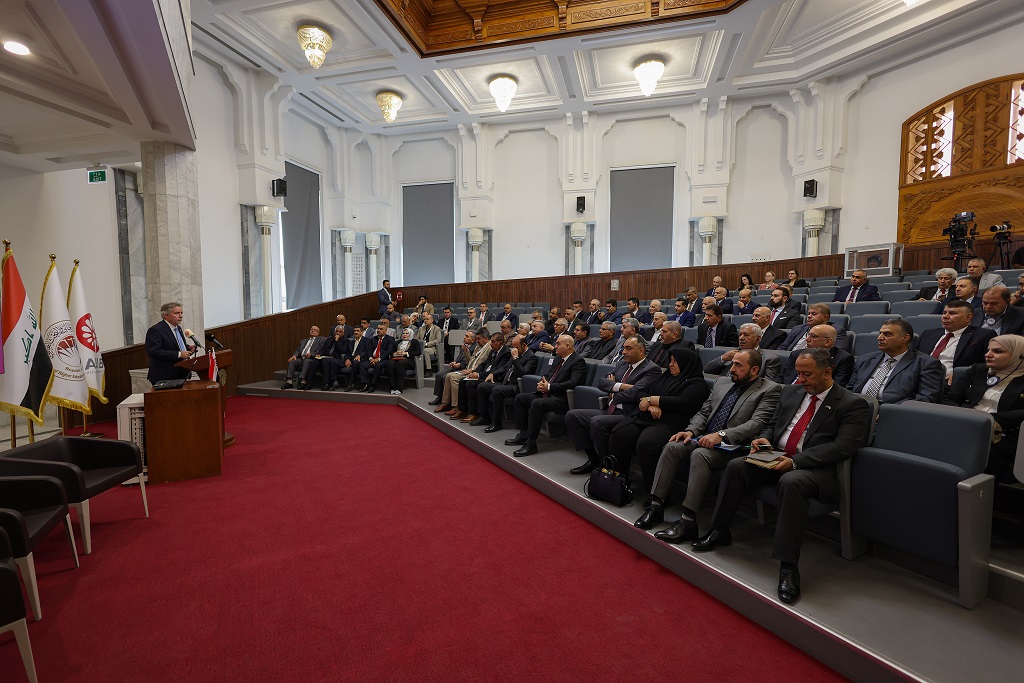Commitment to internationally recognized institutional accreditation standards has become essential for enhancing the quality of higher education institutions in all aspects, and it has become an indicator of quality education and scientific research in these institutions. In this context, and as part of the consistent efforts of the American University of Iraq-Baghdad (AUIB) to fulfill its mission of enhancing education in Iraq, the University’s Continuing Education Institute organized a seminar that brought together a select group of university presidents and college deans from Iraq to discuss “The Role of University Leadership in Implementing Institutional Accreditation Standards.” Among the attendees and participants in the seminar were the Deputy Minister of Higher Education and Scientific Research for Research Affairs, Dr. Haidar Abd Dahd, and the Head of the Supervision and Scientific Evaluation Authority at the Ministry, Dr. Salah Al-Fatlawi, as well as several officials and professionals in the field.
“Nothing is more important than accreditation and being fully accredited,” said AUIB President, Dr. Michael Mulnix, in his opening speech, welcoming the attendees and speaking of the University’s commitment to achieving its goal of becoming a Tier One Research University. President Mulnix briefed the audience on the University’s speedy development of its colleges and programs, as well as its future projects, which will culminate in the establishment of a College of Medicine and an affiliated university hospital in the foreseeable future.
For his part, Dr. Al-Fatlawi considered accreditation to be a prerequisite for the advancement of universities and colleges, noting that the Authority he leads has established around twenty accreditation councils in recent years, which commenced granting accreditations to various colleges, including engineering and medical colleges. Dr. Al-Fatlawi also announced that the process of drafting a law for the ‘Iraqi Accreditation Authority,’ which will be an ‘independent authority’ unaffiliated with the Ministry of Higher Education and Scientific Research, is nearing completion, serving to ensure ‘transparency’ in its functioning.
